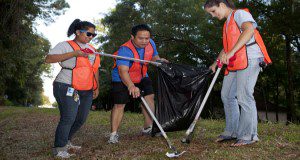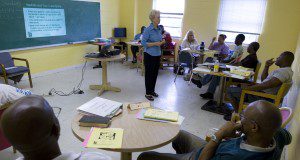This third publication in the Conducting the Needs Assessment series outlines a range of motivations, barriers, and common objections Extension educators and other service providers may have pertaining to needs assessments. It is not an easy task to conduct a needs assessment, yet there are many motives for implementing one. This new 4-page publication of the Department of Agricultural Education and Communication discusses strategies for increasing educator motivation and removing barriers and objections to conducting a needs assessment. Written by Matt Benge.
https://edis.ifas.ufl.edu/wc386
Tag: Matt Benge
Fundamentals of Volunteer Orientation
This new 4-page fact sheet is intended to assist volunteer managers when creating volunteer orientations for their new volunteers. Volunteer training and orientation is a critical component which should promote volunteers’ understanding of the role they hold within organizations. Leaders of volunteer organizations must ensure their organizations have adequately prepared volunteers to carry out the organization’s mission. Last, volunteer leaders should incorporate the cause, system, and social orientation components to effectively create an orientation focused on providing the appropriate onboarding of their most valuable asset: volunteers. Written by Olivia Caillouet, Jessica Williams, Shelby Atwood, and Matt Benge, and published by the UF/IFAS Department of Agricultural Education and Communication.
https://edis.ifas.ufl.edu/wc382
Conducting the Needs Assessment #4: Audience Motivations, Barriers, and Objections
A successful needs assessment is contingent on participation from the right people, so understanding potential motivations, barriers, and objections specific to your participants is critical. This new 5-page publication, the fourth in the Conducting the Needs Assessment series, provides Extension educators and other service providers with an overview of motivations, barriers, and objections specific to participants in needs assessments. Written by Laura Warner and Matt Benge and published by the UF/IFAS Department of Agricultural Education and Communication.
https://edis.ifas.ufl.edu/wc342
Tailoring Recognition to Fit Your Employees' Needs
Employee recognition plays a key role in the success and continuity of productivity, efficiency, and organizational change. This 2-page document discusses employee recognition practices that you can implement in your workplace. Written by Matt Benge and published by the UF/IFAS Department of Agricultural Education and Communication, February 2018.
http://edis.ifas.ufl.edu/wc298
AEC-393/WC074 Creating Interest in Learners
AEC-393, a 3-page illustrated fact sheet by Matt Benge and Amy Harder, describes the “Interest Approach” to classroom instruction, methods for creating interest, and natural impulses that may be appealed to in teaching to help create interest. Includes references. Published by the UF Department of Agricultural Education and Communication, September 2008.
http://edis.ifas.ufl.edu/WC074



